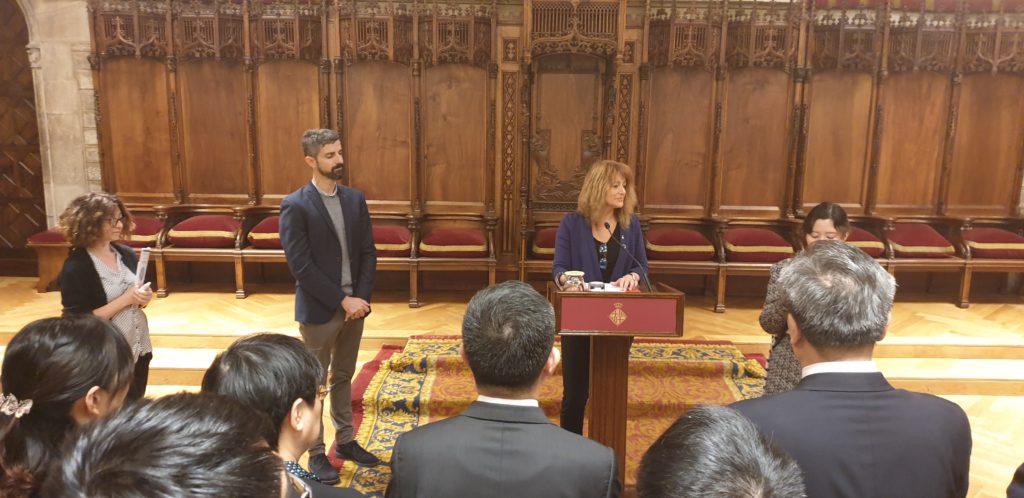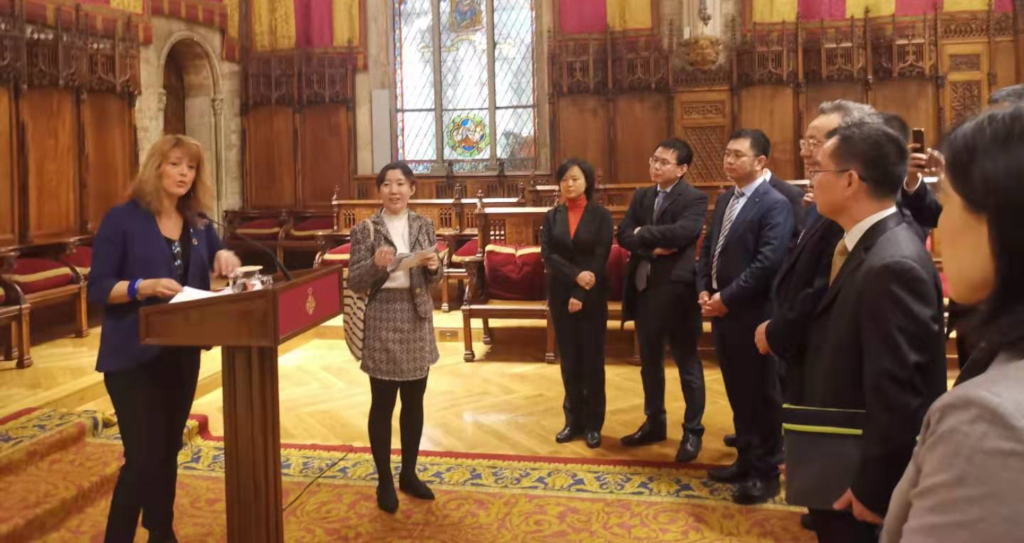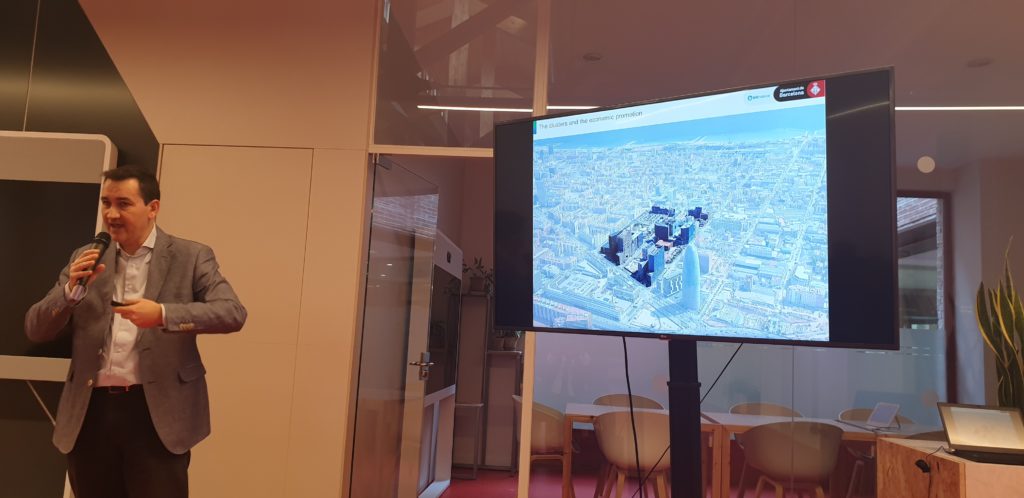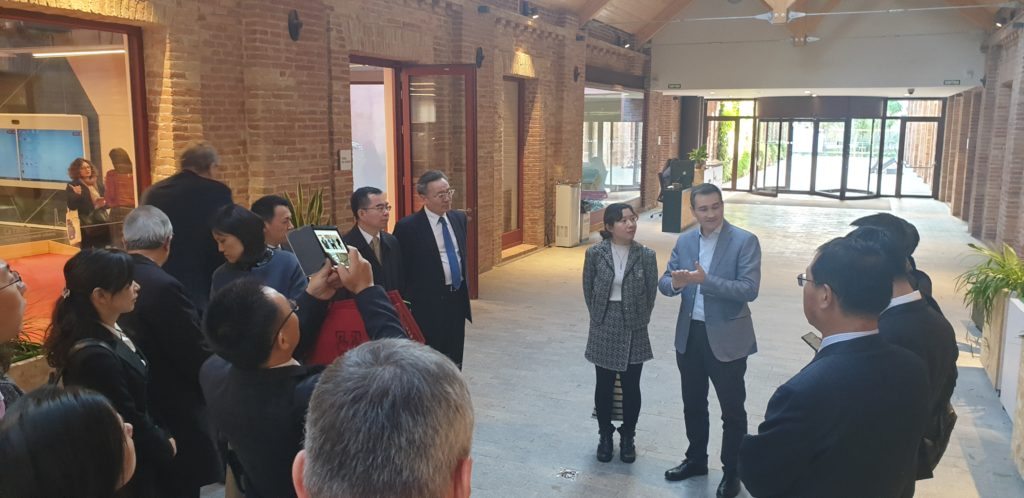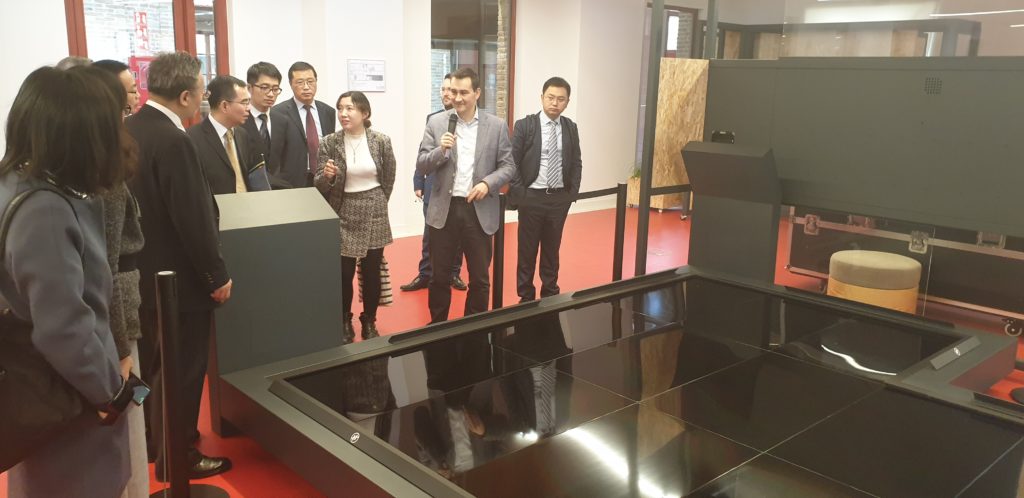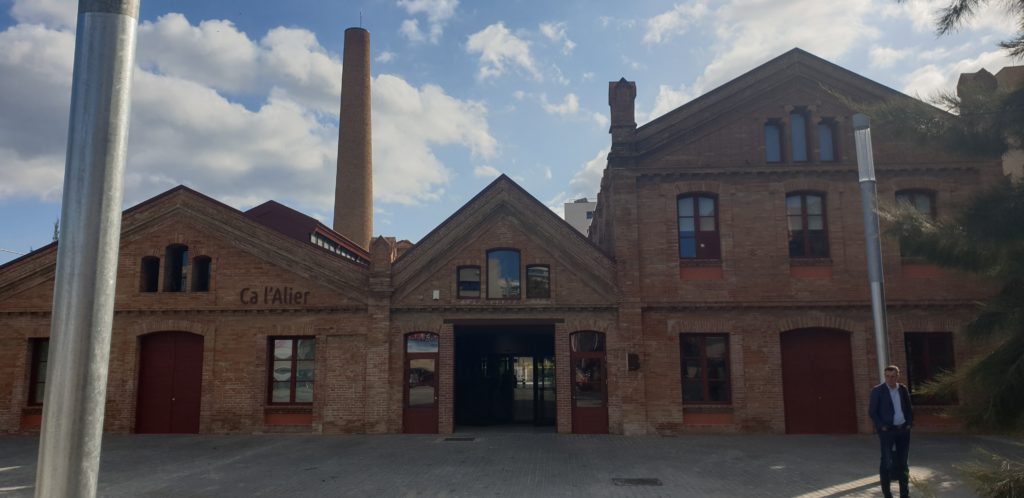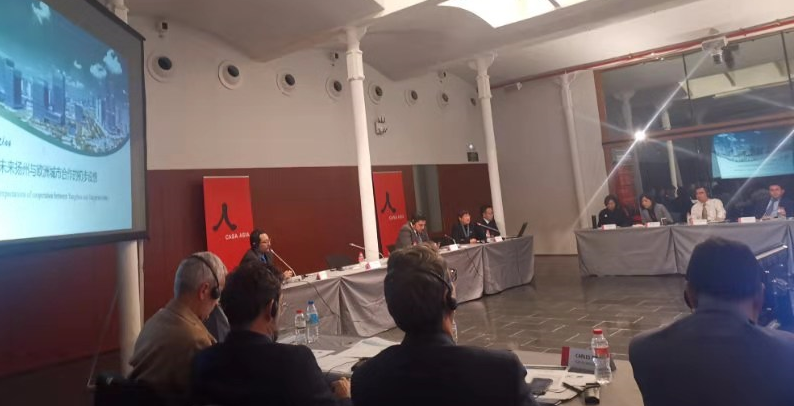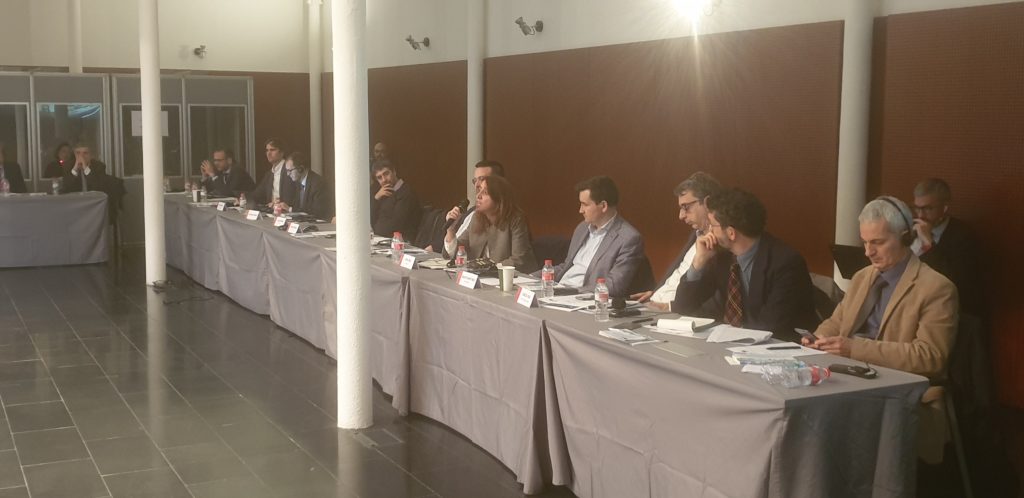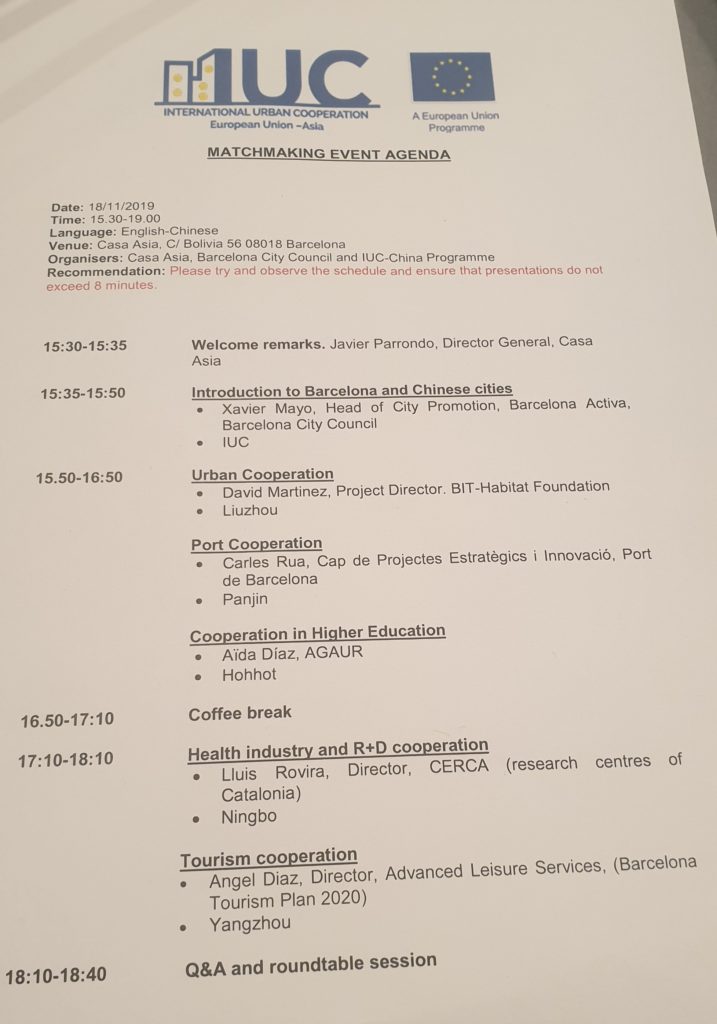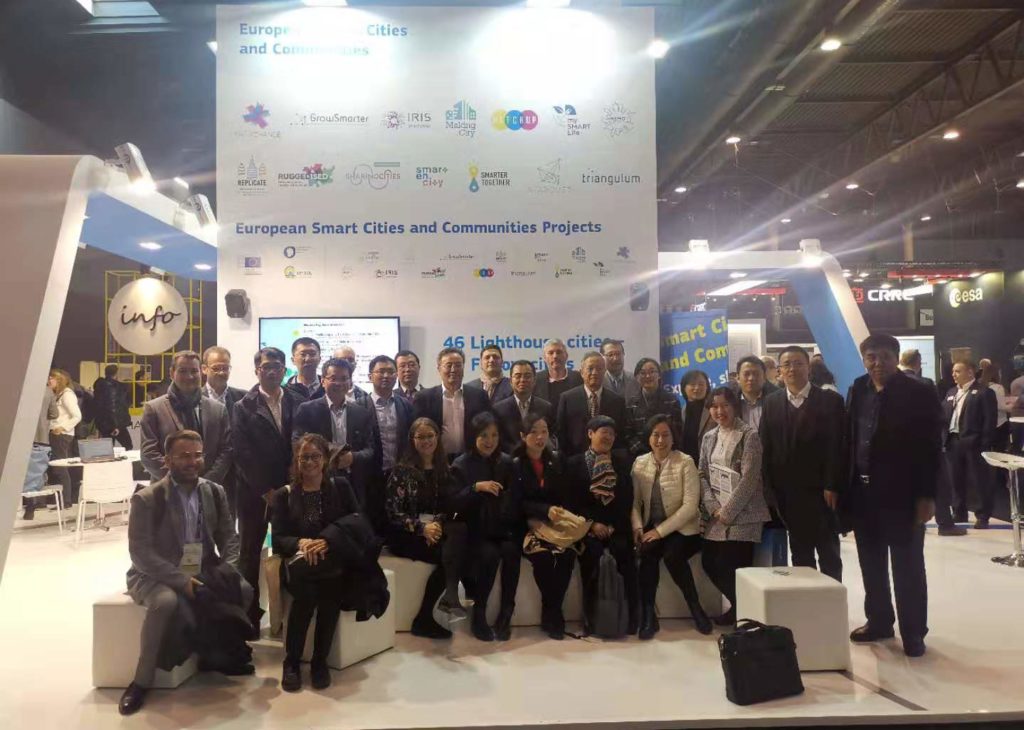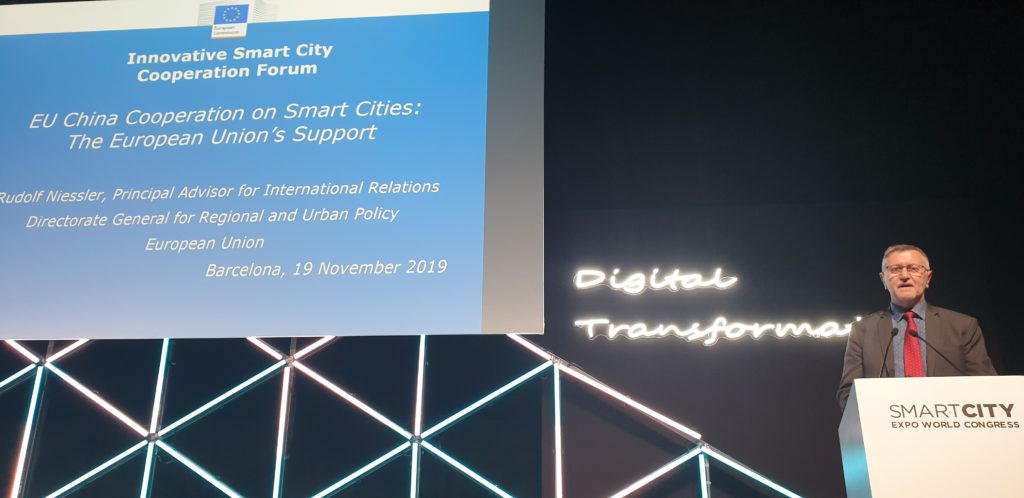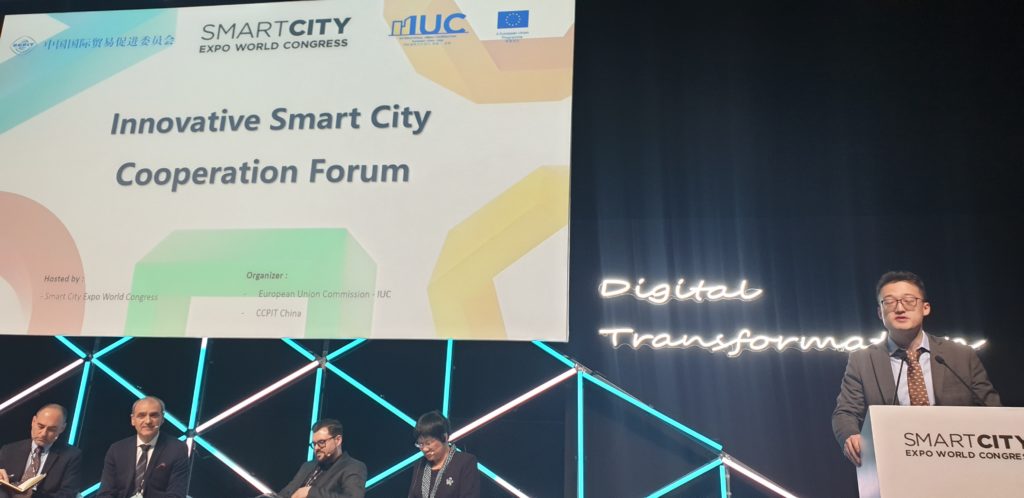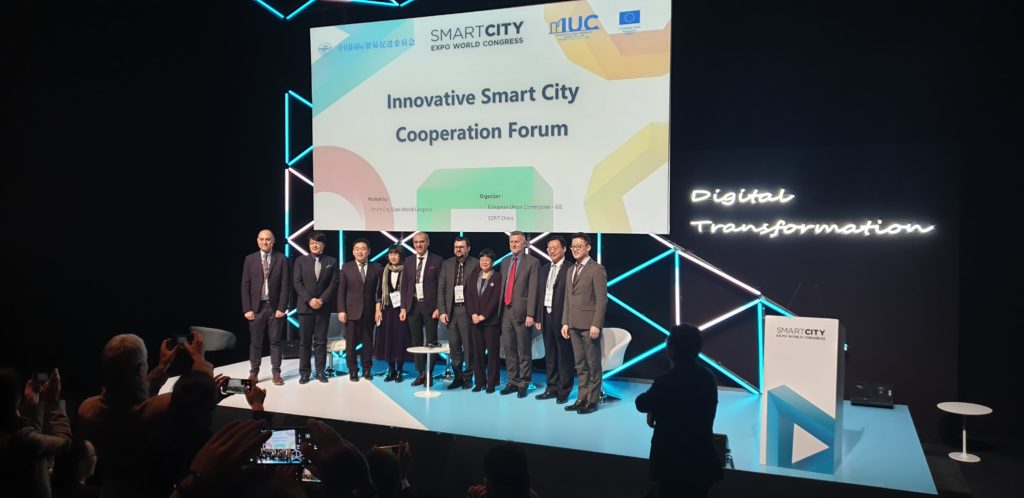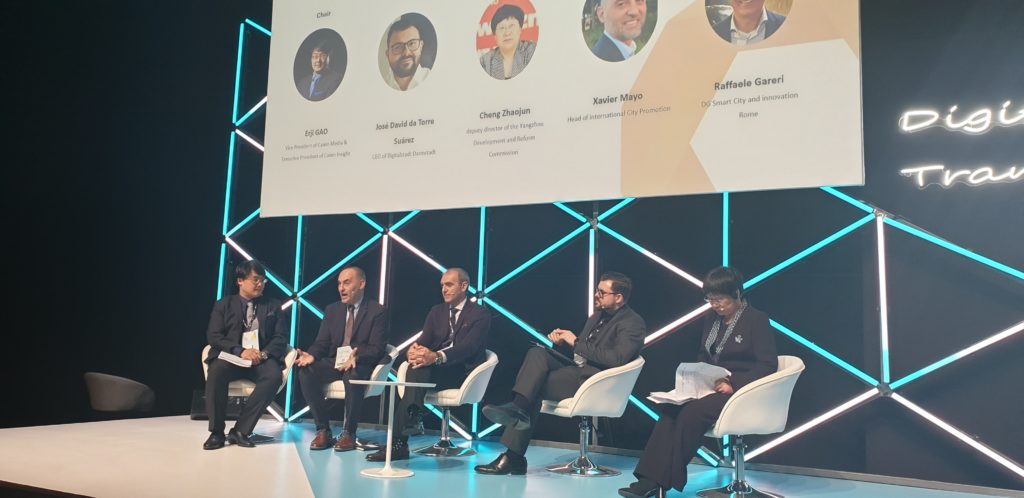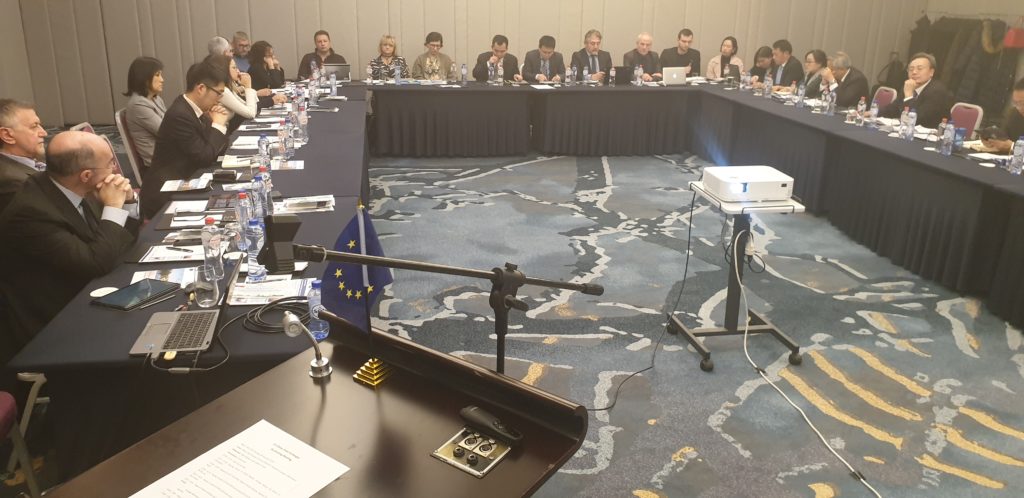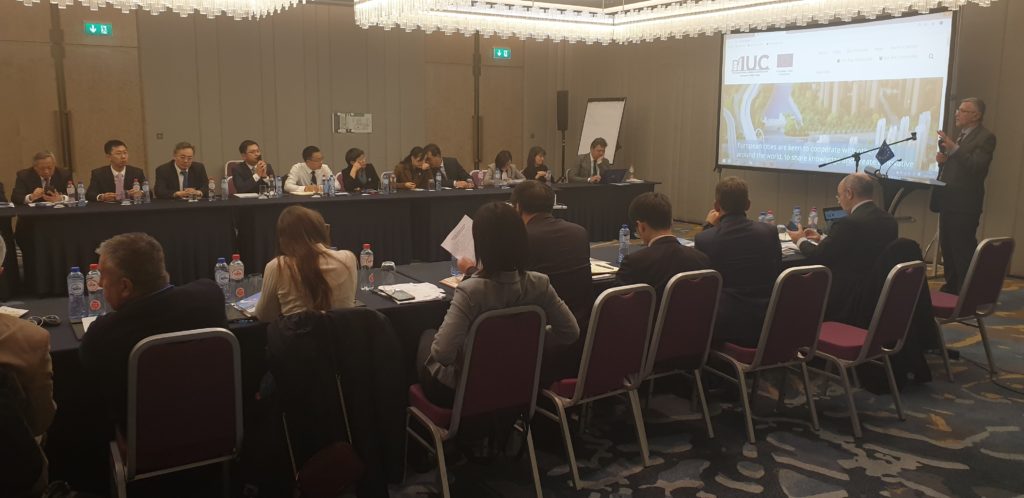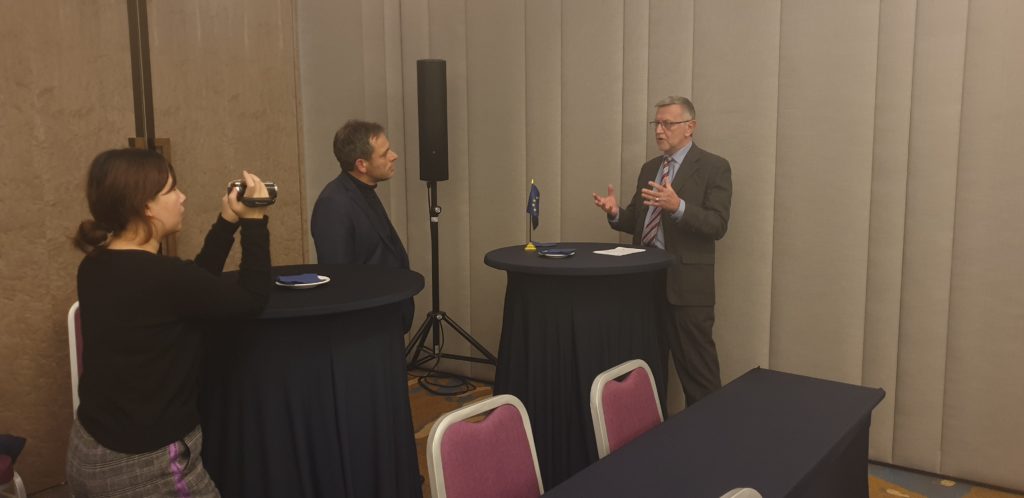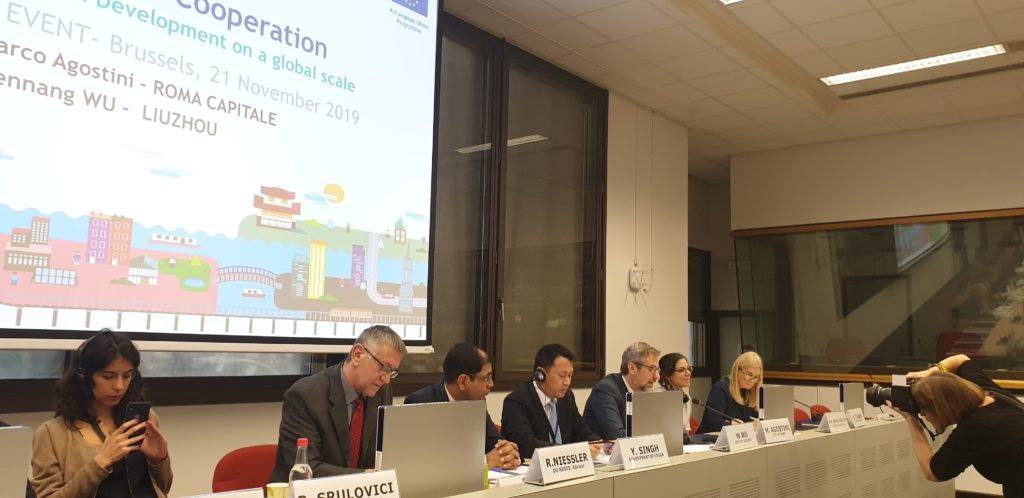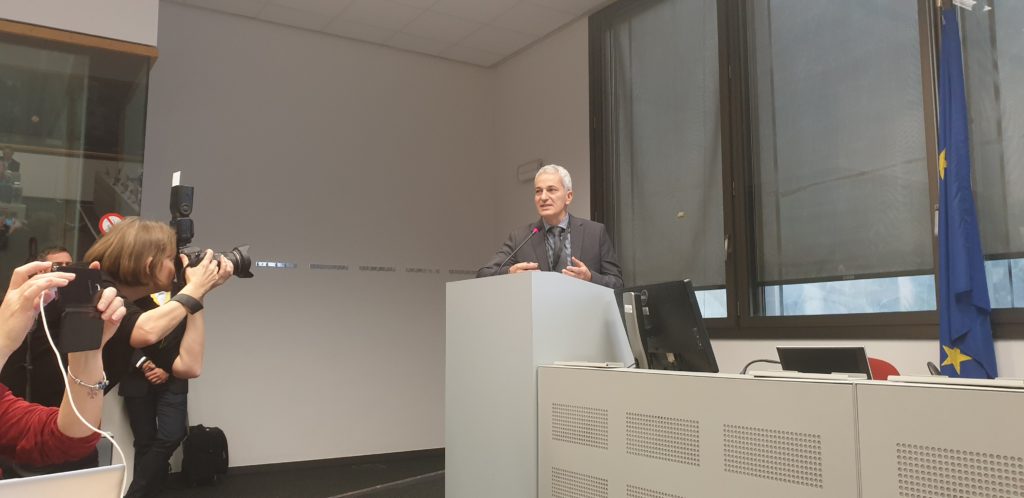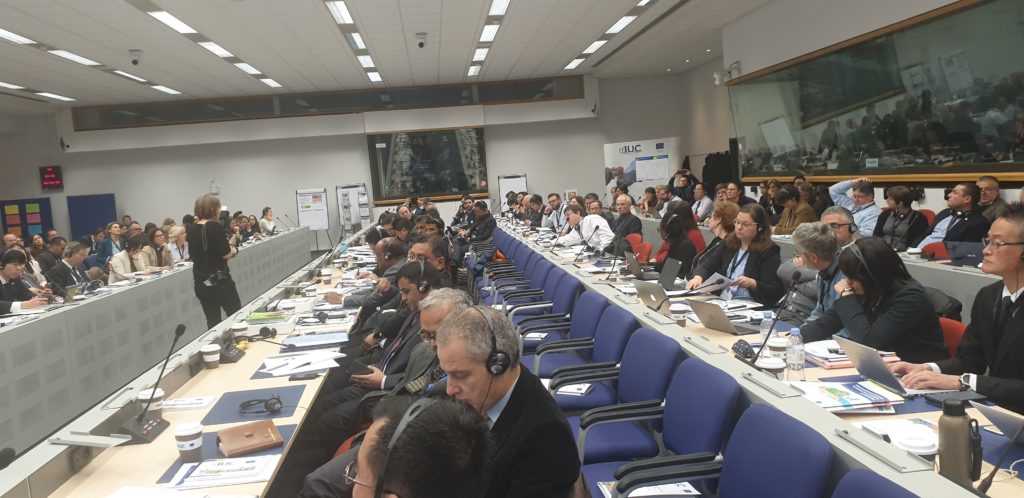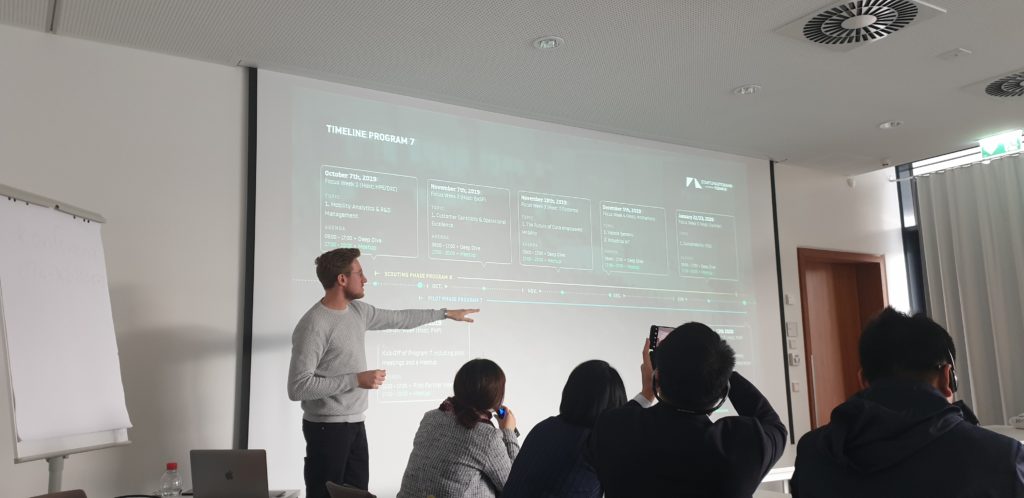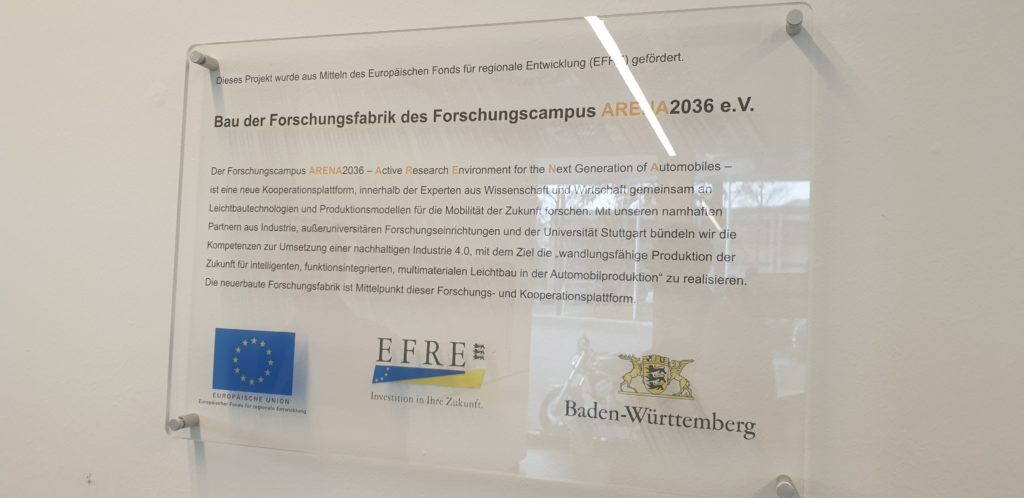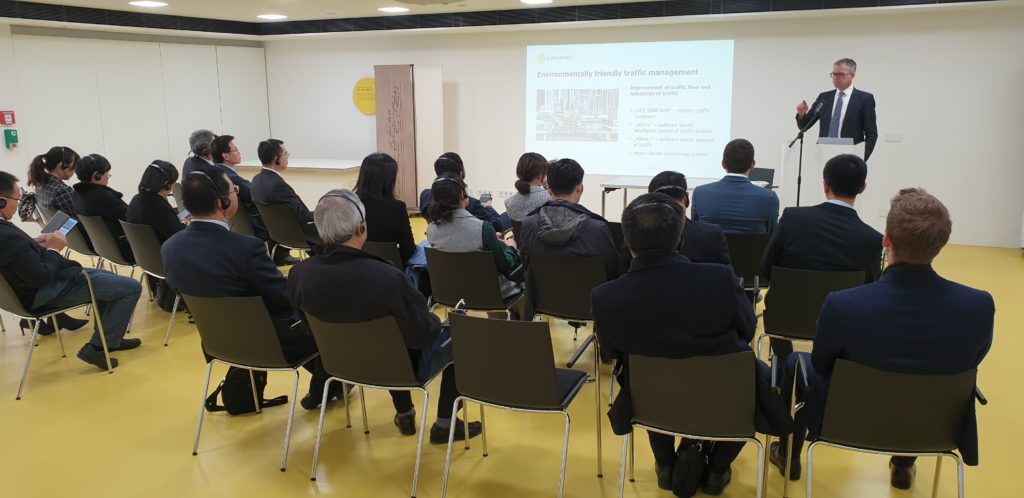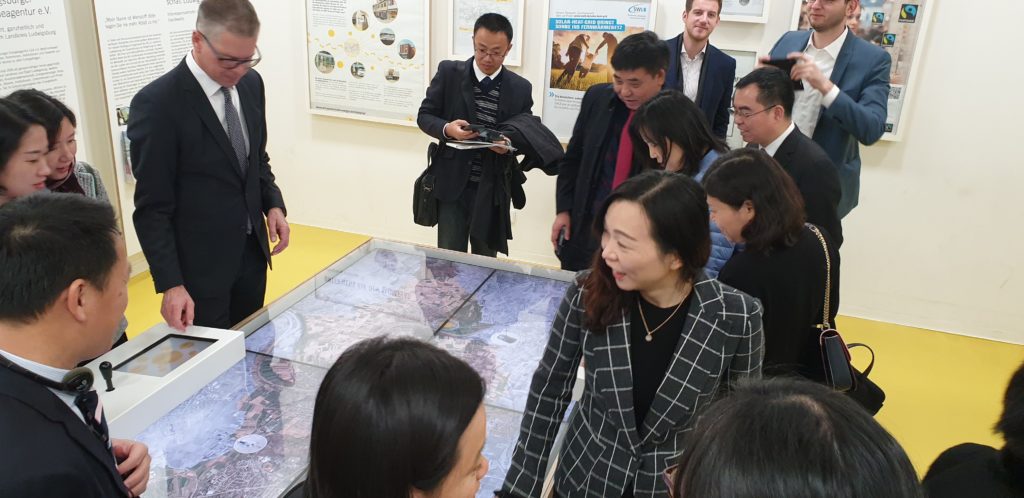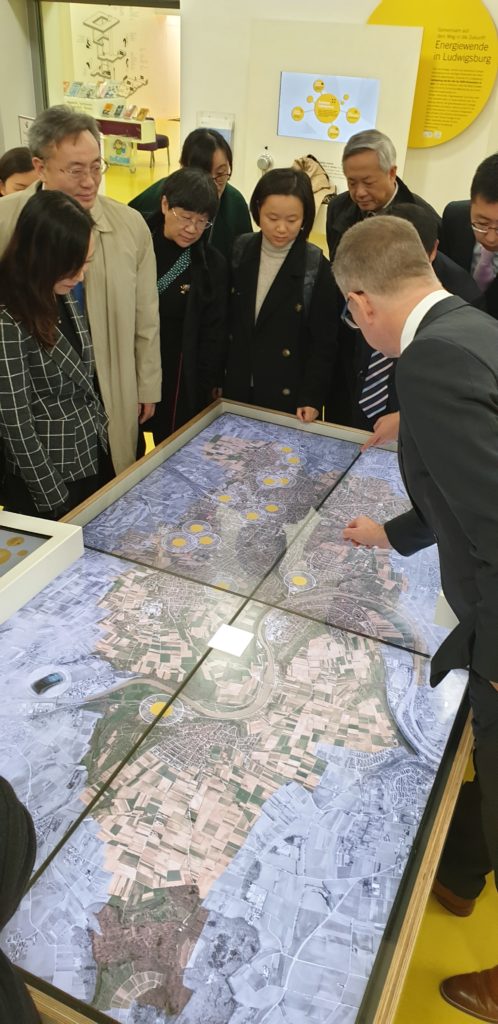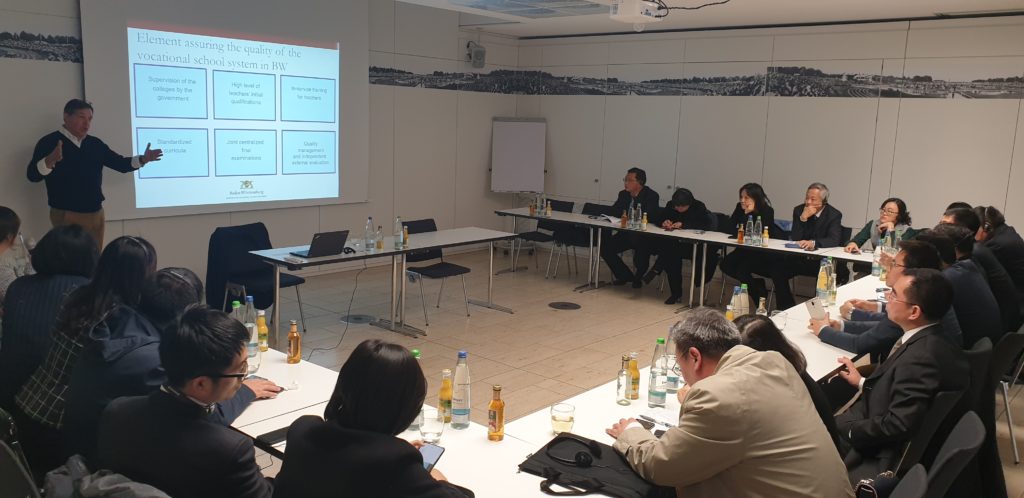European Commission’s DG REGIO experts Ramón Lopez and Rudolf Niesler met this week with delegates from NDRC in Barcelona and Brussels, during an NDRC / Chinese cities’ visit to Europe. The Chinese delegation – that also visited counterparts in Stuttgart and Ludwigsburg – was headed by NDRC’s regional economy department (DDG Cao Yuanmeng). The delegation included experts from the provinces of Jiangsu, Zhejiang, Liaoning and Inner Mongolia as well as from the cities of Hohot, Liuzhou, Ningbo, Panjin, and Yangzhou.
This was the second mission of Chinese cities to Europe during 2019 and a follow-up to the encounters that took place in China and Europe in April, June and September 2019 respectively. According to our thematic clustering approach, the mission centered around the smart city cluster, in which concrete pilot projects have been or are being developed.
FOR FURTHER DETAILS ON THE IUC GLOBAL EVENT PLEASE SEE HERE
Meetings in Barcelona
Meetings started in Barcelona on Monday 18 November with Barcelona’s Deputy Mayor Laia Bonet Rull, who welcomed the Chinese delegates and exchanged views about sustainable urban development policies at the local level.
Chinese delegates also visited the Barcelona Innovation District 22@, where they attended a presentation on new models and technologies of urban planning by David Martínez, Director of BIT-Habitat. At the BIT, they were introduced to the interactive urban database platform of Barcelona, designed to engage stakeholders and citizens in urban planning. After the meeting, delegates had a guided walking visit to 22@ District, including the Ca l’Alier building (an urban innovation centre) and different areas of the Poble Nou (Barcelona’s old industrial area undergoing a major urban redevelopment process).
In the afternoon, Chinese delegates met at Casa Asia with experts from public authorities, research, and businesses to discuss the bilateral cooperation agendas, including district development (see the pilot project with Liuzhou), port cooperation, higher education, R&D on biotechnology and life sciences, as well as tourism development. This session was joined by three representatives from Rome, including Marco Agostini (Chief Advisor for Economy at the City Council) and Sapienza University professors Flavio Rossa and Patrick Maurelli.
On the next day, Chinese delegates visited the Barcelona Smart City Expo and participated in the smart city congress. Here, a special EU-China Smart Cities Forum was co-organised by IUC and Fira de Barcelona and attended by other European IUC pilot cities. The event was moderated by Luis Mao, Representative of Fira de Barcelona in China and opened by Dr. Rudolf Niessler from DG REGIO as well as by Zhiguang SHAN from the State Information Center in China. Mr Niessler and Mr Zhiguang introduced the smart city development perspective from Europe and China respectively. Fuyou SUN, Vice President, Enterprise BG, Huawei Technologies, delivered remarks on smart city development. The forum included a panel discussion on smart city development with experts from Barcelona, Duisburg, Yangzhou, and Rome. It was moderated by Erji GAO, Vice President of Caixin Media in Beijing. After the discussion, a China Gala Award on Smart City and Global Matchmaking facilitated interaction among Chinese and European experts.
Meetings in Brussels
An IUC Asia cluster meeting took place in Brussels on Wednesday 20th November, in which Chinese delegates met with counterparts from the European pilot cities of Barcelona, Bologna, Granada, Manchester, Reggio Emilia, Rome, and Stuttgart. Here, pilot projects were discussed and the new Chinese cities were introduced to the European counterparts.
Presentations by the Chinese cities
Chinese delegates also participated at the 3rd IUC Global Event that took place in Brussels on Thursday 21th November. Here, the results of the pilot project development between Rome and Liuzhou were assessed by representatives from both sides. Also, Chinese cities participated in the break-out sessions dealing with smart city and coastal adaptation to climate change.
Presentaton by Liuzhou & Rome
IUCevent_Plenary 1_Rome-Liuzhou
Meetings in Stuttgart and Ludwigsburg
The working visit finished on Friday 22nd November with meetings at Stuttgart Regional Association, chaired by Dr. Nicola Schelling, Regional Director. Mr Thomas Kiwitt, Planning Director, delivered a presentation on the approach of Stuttgart Region to sustainable development, focusing on mobility. Chinese delegates then visited the ARENA 2036 innovation centre (co-funded with ERDF) and the Startup Autobahn programme, where they interacted with the start-up NAISE.
Later, in the city of Ludwigsburg, they were received by Mayor Michael Ilk, who delivered a keynote about the city’s urban development focuses, challenges and best practices. Mayor Ilk introduced the environmental friendly traffic management measures undertaken by Ludwigsburg to tackle mobility issues and explained Ludwigsburg’s smart city strategy focusing on the digital cloud solution to interconnect traffic and real-time data. Lastly, he also explained the city’s green city and clean air action plans that underline the administration’s commitment to sustainable urban development and showcased an interactive mobility solutions screen used for dialogue between citizens and public administration.
After this meeting, Chinese delegates were able to learn about vocational education in Baden-Württemberg, a major area for cooperation that had been introduced in China earlier in November. Meetings ended in Steinheim with Marco Lietz, Head of International Projects at the Bildungswerk der Baden-Württembergischen Wirtschaft e.V. and centered on the strategic cooperation with China on vocational training.



